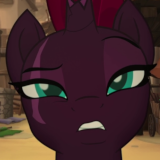Sunverse World Building: The Changelings · 8:20am Sep 20th, 2017
Just sharing more of my notes in regards to what I have been developing. There can and will be changes, as these are just me trying to logic out the story's world. I wanted to work on my favorite race and have a little fun with it.
Changelings:
- Hierarchy: Changelings Hives are ruled by a singular queen. They are the apex of changeling society. Some Hives have multiple queens, usually sisters.
- Changelings are Fae creatures and feed off emotions. They can eat solids and liquids like any living animal, but the need to feed on emotions for their magic.
- There are two sorts of changelings: Greater Changelings and Lesser Changelings. Greater changelings are the more intelligent of the two species while the Lesser Changelings are almost true fae. Changelings like Chrysalis and her hive are considered Greater. Lesser Changelings cannot speak, but can mimic.
- Greater Changelings have a lifespan of fifty to seventy years. Queens have been known to live for centuries. Lesser Changelings live up to twenty years. Lesser Queens rarely reach a century.
- Lesser Hives are often slaves to Greater Queens. Wild Lessers are rare and quite feral. Zebra and other hopefuls sometimes attempt to capture young, wild Lesser Queens during their mating flights after the spring monsoons.
- The Lesser Queens have more of a typical hive common to bees or wasps (mostly wasps). Most are female and what few males they have are jealously guarded by their queen and princesses (immature queens).
- Every seven years, there is a Purging. This is when the Greater Queens look at the numbers of their enslaved Lessers and hurl them at each other in battle.
- Great Queens (as we'll call the smart ones) sterilize most of the males at birth to prevent over breeding ('cause changelings love sex). She keeps the fertile males as her consorts and uses them to reward females who want to start a family of their own.
- Changeling eggs are laid in a communal hatchery. Males care for and guard them until they hatch two months later. Once the eggs are hatched, the changeling females come and gather up their young and raise them in their personal chambers. Changeling mothers are given maternal leave to raise their young.
- Changeling young are considered nymphs until their third molt.
Changeling Notes:
— Well, consorts do exist and they are pampered (and quite rare). The minor queens will use them to trade with other queens as they want to avoid inbreeding as much as possible. In exchange, they might get a number of eggs in compensation. The more intelligent hives have more of a reverse harem structure, where there are a lot of males and queens hoard the best ones for themselves. Most females are without males, but can breed (this is controlled strictly by their respective queen). If they are allowed to breed, they are restricted to one or two nymphs at any given time. If one dies, then the mother can petition her queen to lay another egg.
— The intelligent queens can have as many children as they want...because they're queens.
— Great Queens (as we'll call the smart ones) sterilize most of the males at birth to prevent over breeding ('cause changelings love sex). She keeps the fertile males as her consorts and uses them to reward females who want to start a family of their own.
— The Lesser Queens have more of a typical hive common to bees or wasps (mostly wasps). Most are female and what few males they have are jealously guarded by their queen and princesses (immature queens).
— Inbreeding is instinctually avoided. Most males of lesser changeling hives leave the nest on maturity (puberty) and wander around the savannah until another hive notices and captures them. Once they are captured, their wings are permanently removed and they spend the rest of their lives being fed and mating.
— Male changelings are irreplaceable resources. The females love their males and put them in a protective shell in the heart of their hives, usually near the queen's chambers. Males care for the eggs and nymphs.
— Education: Well, for the Great Hives, they're given an education on par with what ponies get, education wise. Basic stuff in math, reading, writing, magic. Little to no education is given in the Lesser Hives. They simply grow like a lion cub would in the wild.
— Male changelings are elite warriors. Think of Spartan boys at the age of seven when they are given over to the state for their military training. They are extremely aggressive towards females (and other changelings) they don't know. Males will attack a much larger female to protect their babies.
— Life Spans: Greater Queens can live several hundred years. Lesser Queens can live forty to sixty years. Greater changelings can live up to a hundred years, but most rarely live past forty. Lesser changelings live up to twenty years, but few ever live past ten.
— Greater changelings take pride in their stamina. They don't have the speed of a pegasus, the strength of an earth pony, (magic...debatable) are on par with normal unicorns.
— Greater changeling Queens exchange males with other Greater Queens and have been doing so for thousands of years to keep the peace between them. Ugly little wars do sprout up every now and then, but peace treaties are made with the exchange of young males.
Let me know your thoughts! An open discussion is welcome.






The biggest one i have is why this level of detail is so sorely needed?
And what prompted such a unique shift in these lings?
ooooh new hints that works still being done?
4673446
It's been something stewing for the past couple of years. Readers saw a little of it showcased in 'I, Chrysalis'.
4673594
Yep! Still, I haven't decided if I want to put that in yet. The main story itself won't have a changeling heavy focus. If I do go with them, they'll be background characters, like Applejack.
4673700
Nothing says there wont be side-stories though.
What do the the zebras do with a captured lesser queen? Since you have two stories of changeling mating with ponies (e.g., Queen Chrysalis and Shining Armour), resulting with progeny, will you add to the list that changeling are able to procreate with ponies?
4674194
Lesser changelings are regarded as pets and produce luxury resources. They are chimpanzees compared to the Greater changelings.
Greater changelings can and do mate outside of their species.
4674261
It would be interested how changelings & ponies are related in your universe.
well Queen felu went outside her species (my daughter chrysalis)